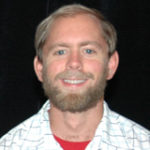

2013 Young Scholars: Stuart Irvine-Brown
![]()

QLD
…the curiosity to which our science can suffice is only mended temporarily for a fleeting moment of satisfaction before the next question simmers to the surface.
Togo, South Africa, Niger, Tanzania, Nigeria, and Malawi, six of the fifty six countries that make up the continent of Africa. These were the African countries represented upon the table at which I was seated for the joint conference of The Crawford Fund and the Africa Australia Research Forum. Additionally I was accompanied not only by African delegates but also by Prof. Lyn Abbott of the University of Western Australia and by Mr. Federico Bonaglia of the OECD amongst other professionals of varied backgrounds but all of whom had common interests on sharing thoughts, perspectives and propositions on dealing with the issues of food security and international development relative to mining and agriculture. Informed and alerted about the current issues occurring in development efforts within Africa by many important speakers invigorated me to carry out dialogue and discussion around our table and to tweet our regular results within the 127 character limit and continually evolving timeframe. Such a scheduling of speakers and brainstorming sessions within the conference climaxed in a final term of discussion on the fundamental components of mining and agriculture and how they must co-exist, co-operate and contend with the future challenges of the planet’s development and change.
This opportunity for intellectual discussion between those of diverse origins on the over-arching subject of international development and enhanced food security was sandwiched on either side by a chance to network and enjoy the company of delegates and other Crawford Fund sponsored young scientists. Firstly at the Sir John Crawford Memorial Address we were all given a stirring view on the distance travelled so far on the journey towards food security and the work that remains to be done by the inspirational and affectionate Dr. Florence Chenoweth, someone who has contributed significantly to theoretical knowledge and delivered practical outcomes towards poverty alleviation and sustainable food production within Africa. Given the wide range of people attending and the diversity of professional backgrounds represented it would have been impossible to talk with everyone. Yet still I was able to converse with a wide range of people who shared their views, information and impressions on items from mining and mineral processing to agricultural development and even soil organic carbon within Queensland Vertosol soils; co-incidentally the very subject of my PhD!
What a stroke of luck! To be able to discuss specifics of my current scientific interest with someone who was in a similar position to me with the same institution many moons ago. As we all should know the curiosity to which our science can suffice is only mended temporarily for a fleeting moment of satisfaction before the next question simmers to the surface. With this not only am I referring to the chance to discuss my PhD with a learned leader, but also to be able to spend the final day of the conference at the WA Department of Agriculture and Food along with other young scientists currently researching agriculture issues important to the question of how to meet our food security requirements. As member of the audience I was enthralled by the insight given and excited about the possibilities these projects could provide towards solutions in a scientific sector that is to become an ever more important pillar of our future existence. I am extremely grateful for being allowed the privilege of attending such an important conference and have been fuelled to continue on my quest to making important and significant contributions towards the science of our aim to provide food security for the world that is not at the expense of the planet.